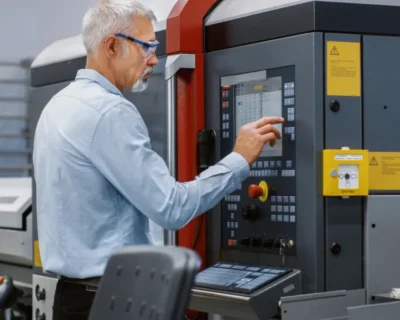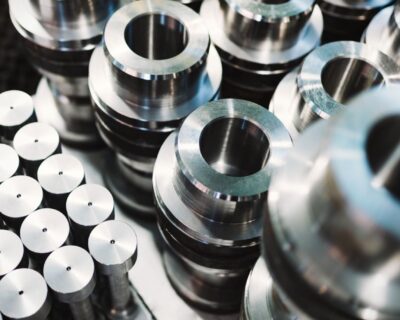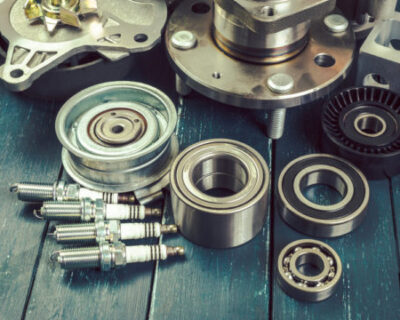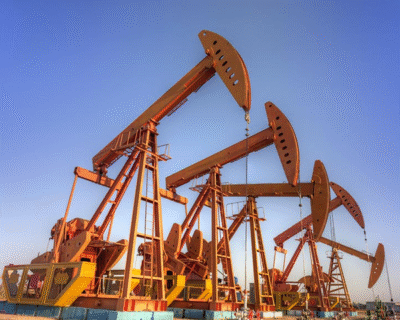Material Selection for High-Pressure Environments: From Alloys to Fittings
Table of Contents
ToggleIntroduction: Why the Right Material Matters More Than Ever
In high-pressure industrial environments, from offshore oil rigs to thermal power plants, the choice of material can be the ultimate deciding factor between uninterrupted productivity and catastrophic failure.
Across the UAE and GCC, industries such as oil & gas, petrochemicals, desalination, and power generation operate in extreme conditions. These applications demand materials and fittings that can withstand intense pressures, extreme temperatures, corrosive chemicals, and sometimes all three at once.
As a high pressure fittings supplier in the UAE and distributor of exotic alloy components across the GCC, CM Trade General Trading Company has helped numerous EPC contractors, plant operators, and maintenance teams make informed choices about materials that not only meet operational demands but also maximize safety, efficiency, and compliance.
In this guide, we’ll explore:
- Why material choice is critical in high-pressure systems
- The most suitable exotic alloys for these environments
- How to match alloys to fittings for long-term performance
- Compliance, quality assurance, and supply chain considerations
The Challenges of High-Pressure Operations
Operating at high pressure isn’t just about withstanding force, it’s about enduring combined stress factors over long periods.
Mechanical Stress
Continuous exposure to high internal pressures can cause microcracks, fatigue, and eventual rupture.
Thermal Extremes
Power plants and refineries may experience temperatures exceeding 600°C, which can weaken some metals.
Corrosive Agents
Saltwater, hydrocarbons, acids, and chlorides accelerate wear and pitting corrosion.
Regulatory Compliance
Industries in the UAE and GCC follow strict standards like ASME, API, and ISO for material and fitting performance.
Failure to address these factors can lead to:
- Unplanned shutdowns
- Expensive emergency repairs
- Legal liabilities due to safety violations
Exotic Alloys for High-Pressure Applications
When standard carbon steel or basic stainless steel won’t suffice, exotic alloys step in to provide superior mechanical strength and corrosion resistance.
1. Inconel: The High-Temperature Specialist
- Composition: Nickel-chromium alloy, sometimes with molybdenum.
- Advantages: Excellent oxidation resistance, retains mechanical strength even at 700°C+, resistant to chloride-ion stress corrosion.
- Applications: Gas turbine blades, offshore riser systems, petrochemical reactor vessels.
2. Monel: The Marine Champion
- Composition: Nickel-copper alloy with small amounts of iron and manganese.
- Advantages: Exceptional resistance to seawater, steam, and caustic solutions; excellent mechanical strength under high stress.
- Applications: Seawater piping, desalination plants, marine pump shafts.
3. Hastelloy: The Chemical Protector
- Composition: Nickel-molybdenum alloy, often with chromium or cobalt.
- Advantages: Outstanding corrosion resistance in both oxidizing and reducing environments, suitable for handling strong acids.
- Applications: Chemical reactors, acid-processing heat exchangers.
4. Duplex & Super Duplex Stainless Steels
- Composition: Balanced mix of ferritic and austenitic stainless steel microstructures.
- Advantages: High strength, improved resistance to stress corrosion cracking, better fatigue resistance than austenitic grades.
- Applications: Subsea pipelines, offshore platforms, pressure vessels.
The Role of High-Pressure Fittings
Pipes carry the load, but fittings ensure the system remains leak-free and structurally secure. Understanding the types and uses of high-pressure fittings is essential for safe and efficient operations in oil & gas, petrochemicals, and power generation.
Types and Uses of High-Pressure Fittings
- Elbows & Bends: Change flow direction without excessive turbulence.
- Tees & Crosses: Split or merge flows efficiently.
- Couplings & Adapters: Connect different pipe sections or diameters.
- Union Fittings: Enable quick disconnection without system compromise.
Threaded vs. Welded Fittings
- Threaded: Easy to replace but suitable for moderate pressures.
- Welded: Permanent, robust, and preferred for extreme pressures or hazardous media.
Key Standards for High-Pressure Fittings
- ASME B16.11: Forged fittings
- ANSI: Dimensional consistency for threads and sockets
- API 6A / 6D: Oil & gas equipment performance requirements
Material Selection Checklist
When sourcing materials and fittings for high-pressure environments, consider:
- Operating Pressure & Temperature: Ensure the alloy’s tensile strength and creep resistance match the system’s maximum ratings.
- Corrosion Resistance: Match alloy composition to the chemical profile of the environment.
- Fatigue Resistance: Choose alloys that can handle pulsating loads without cracking.
- Compliance Requirements: Verify the materials meet ASME, API, and local UAE/GCC regulations.
- Supply Chain Reliability: Ensure a consistent supply of certified materials to avoid downtime.
Applications in the UAE & GCC
Oil & Gas Exploration
Offshore rigs use Monel and super duplex stainless steel fittings for seawater injection systems.
Petrochemical Processing
Hastelloy withstands aggressive chemical mixtures in reactors and heat exchangers.
Power Generation
Inconel ensures steam turbine components maintain integrity at extreme temperatures.
Desalination Plants
Duplex stainless steel provides long-term resistance to chloride-induced corrosion.
How CMT Supports High-Pressure Projects
As a leading high pressure fittings supplier in UAE and exotic alloy components distributor in the GCC, CMT offers:
- Technical Consultation: Matching alloys to operational demands.
- Certified Supply: Stocking Inconel, Monel, Hastelloy, duplex steels, and more.
- Compliance Assurance: Providing materials with full mill test reports and certification.
- Fast Delivery: Strategic stock points in the UAE for urgent project needs.
Final Thoughts
In high-pressure operations, material choice isn’t a procurement detail, it’s a safety, compliance, and cost-control strategy. By combining exotic alloys with the right types and uses of high-pressure fittings, industries in the UAE and GCC can protect assets, improve uptime, and extend equipment life.
CM Trade’s expertise ensures that every component you source is engineered for the challenges of pressure, heat, and corrosion, delivering confidence in even the most extreme conditions.
Ready to Source Certified High-Pressure Materials?
Contact CM Trade today, your trusted partner for high pressure fittings in UAE and exotic alloy components across the GCC and keep your operations running at peak performance.



